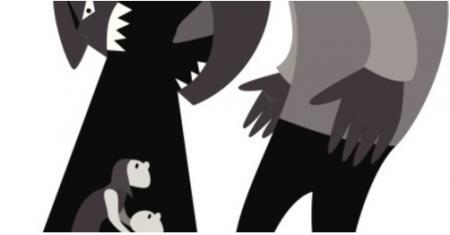
Domestic violence is any violent or aggressive behavior by one person against another within home, typically involving the violent abuse of a spouse or partner. These behaviors, used by one person in a relationship to control the other, occur in many forms; physical violence, verbal violence, sexual violence, psychological violence, and emotional abuse. All these acts and behaviors are rationally condemned, but, how does Islam react to this phenomenon and what solutions does it propose?
No harm to oneself, nor to others
According to the Islamic teachings, any harm to oneself is either totally forbidden (Haram), or should be avoided and is detestable (Makruh); so is any harm to others. Prophet Muhammad (PBUH) said that whoever hurts others, God will hurt him; and, whoever inflicts pain on others, God will give him pain. That is also true about any kind of domestic violence. Since it causes pain and harm to the victim, domestic violence is also condemned in Islam.
Bad temper is blamed; so is any violence
It is narrated that prophet Muhammad (PBUH) assisted the funeral of Sa'd ibn Ma'ad [i]. He (PBUH) did things during that funeral, and respected him so much, that he (PBUH) had never done in any funeral before. He (PBUH) ordered to bath the corpse, and he (PBUH) did the funeral prayer himself. But at the end of the event, he (PBUH) declared that Sa’d is suffering from the pressure in the grave. People were surprised that how come that someone who has been such dignified by the prophet (PBUH) is suffering from the grave pressure. Prophet (PBUH) explained that Sa’d was bad-tempered towards his family.
Islamic teachings have always emphasized on the importance of the family and Muslims are advised to toleration in order to maintain the foundation of the family.
In another narration, it is said that the worst of people is the one who is rough to his family; i.e. whose wife gets frightened and children hide when he arrives home, and they feel relieved when he leaves. On the contrary, as prophet Muhammad (PBUH) said, the closest to the position of prophet (PBUH) before God is who behaves very well with his family and is the most beneficent to them”.
These examples show that every harsh treatment with the family will be counted and will be paid afterlife. Then, it is clear that any violence, either verbal or physical, is forbidden in Islam and will be punished severely.
Any physical violence is banned
Imam Ali (AS) has advised that: “the wife is really like a flower (it is fragile), put up with her in any case and accompany her nicely to have a pleasant life”. It means that contrary to the rumours that Islam has permitted the husband to hit his wife, Islam has ordered to honour her and to treat her kindly; even if he no longer loves her (4:19).
A few solutions …
Islamic teachings have always emphasized on the importance of the family and Muslims are advised to toleration in order to maintain the foundation of the family. Hence, in the case of dispute between a couple, Islam invites to patience: “Whoever remains patient despite the misbehaviour of his wife, God will give him a reward as great as Ayub's [ii] for his affliction. Likewise, if a woman keeps patience despite the misbehavior of her husband, God will give her a reward as great as Asiya bint Muzahim (the Pharaoh's wife) [iii] .”
When it comes to children, special attention is paid to their education. To raise well-behaved children with a good character, Islam forbids any humiliation and violence against them. Imam Ali an-Naqi (AS) said that: “Do not beat the child; just sulk with him, but not for a long time.” Although parents might blame their children under some conditions and in certain circumstances, they are warned against too much reproach. Imam Ali (AS) said that: “Excessive blame on anybody will increase the obstinacy.”
It is notable that a true Muslim should be also tolerant and considerate towards other people as much as he/she is towards his family and relatives. This will be discussed further in another article.
